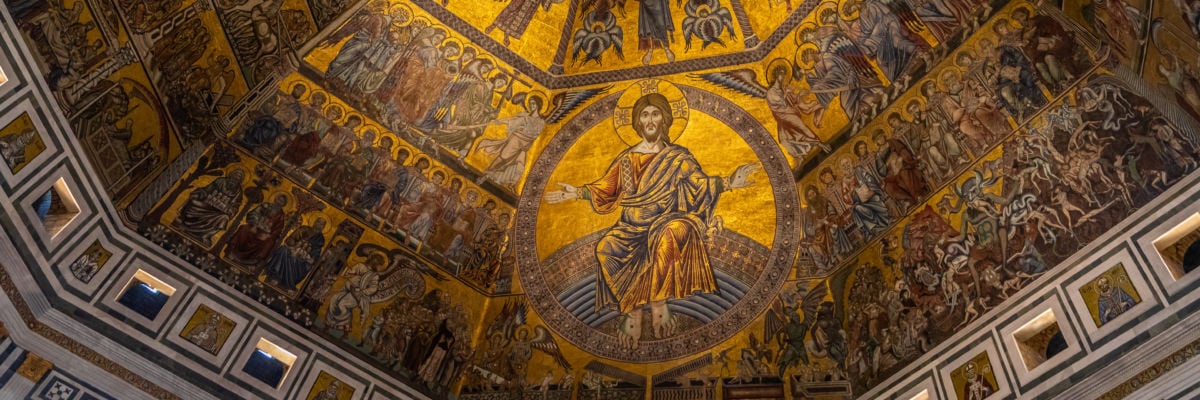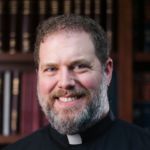
The collect used in the Ordinariate form (Divine Worship) for today’s Mass is quite different from the one being used in most of the Catholic world:
Almighty God, give us grace that we may cast away the works of darkness, and put upon us the armor of light, now in the time of this mortal life, in which thy Son Jesus Christ came to visit us in great humility; that in the last day, when he shall come again in his glorious majesty, to judge both the quick and the dead; we may rise to the life immortal.
This is a remarkable prayer, both for its beauty and its clarity. One reason is that, unlike the vast majority of prayers in our missal, this prayer was not composed in Latin but in English—around 1549, for the first English Book of Common Prayer. Some may find its use a little scandalous, since it was composed by a Protestant. But I mention it boldly in remembrance that Pope Benedict declared just this kind of thing a “treasure to be shared.”
And what, here, is worth sharing? A reminder of what Advent is about. Just yesterday I was talking to my son about Advent calendars—you know, the little ones with twenty-five doors and special surprises behind each. We were talking about how these calendars coincide with the dates of December, but not the actual dates of liturgical Advent.
And as it turns out, they do not often really coincide with the actual themes of Advent, either! If they did, this first week would consist of door after door of hellfire and brimstone reminders from the prophets reminding us that Jesus is coming back and he’s not going to be all kind and gentle like he was the first time. The second week we’d get a series of messages from St. John the Baptist, largely following a now-classic meme in which the oddly attired wild man declares “Merry Christmas, you brood of vipers.” Finally, in the third and fourth week we’d get some notes about Mary, but the bulk of these would be focused on the social difficulty of her pregnancy, and of how, in her, those in power will be cast down and the poor raised up.
All of which is to say: Advent has never been and never will be just “Christmas Lite.” I know that Americans like to lump everything from October to January as “the holidays,” but holy days for Christians include fasts as well as feasts. True, Advent isn’t a strict fast like Lent, but that doesn’t mean it’s meant to be unbridled festivity, merely a practical time to make sure that all the presents get wrapped and the Christmas pudding properly seasoned.
Which brings me back to the collect. We beg God’s grace to “cast off the works of darkness.” The quotation from this morning’s reading in Romans is pretty direct. The time has come, St. Paul tells us, to “awake from sleep.” And that is because, as Matthew tells us, the Son of man will come at a time when we do not expect. And Jesus isn’t talking about Christmas; he’s talking about the end of the world.
The prayer reminds us that the first Advent is intrinsically related to the second. The purpose of Advent is not merely to commemorate the nativity; it is to prepare ourselves for the final and definitive advent of Christ in the world—the advent spoken of in the Gospels and in the prophets: the Day of the Lord when the Son of Man will come in glory to judge the quick and the dead.
St. Cyril of Jerusalem encourages us to see these “two aspects” in the whole work of the Incarnation:
There is a birth from God before the ages, and a birth from a virgin at the fullness of time. There is a hidden coming, like that of rain on fleece, and a coming before all eyes, still in the future. At the first coming he was wrapped in swaddling clothes in a manger. At his second coming he will be clothed in light as in a garment. In the first coming he endured the cross, despising the shame; in the second coming he will be in glory, escorted by an army of angels.
As he continue this famous sermon, he warns us that the Savior will not come “to be judged again, but to judge those by whom he was judged.”
Preparing for Christmas means preparing for judgment. That we first encounter this judgment in the form of a helpless baby should not obscure for us the fact that the baby grows up. So preparing for Christmas should be joyful, but also hard, much in the way that any preparation for childbirth is both joyful and hard.
I’m not saying you have to be gloomy or avoid premature Christmas parties or be a jerk about people giving you holiday greetings. Sing “Jingle Bells” all you want—as long as you also put in the work of fasting, of praying, of offering up some kind of spiritual and bodily discipline.
In a sermon about preparing for Advent with bodily penitence, Pope St. Leo the Great makes what I think is a pretty profound observation: “The body without the soul could not conceive desire. The body’s power to enjoy comes from the same source as its power to choose.”
There’s probably too much here to unpack, but let’s glean at least this much: the enjoyment of bodily things ultimately comes from the soul. As we approach the mystery of the Incarnation, there’s much to meditate on there. A celebration of Christmas without its real spiritual wealth is ultimately no real enjoyment, either.
So, in order to enjoy the coming feast, St. Leo tells us, we need to fast. We need to prepare the body to receive the joy of the Lord. For if we are prepared, his judgment will be not a source of pain and anxiety, but a final confirmation of the love that he first showed us on that first Christmas so long ago.



